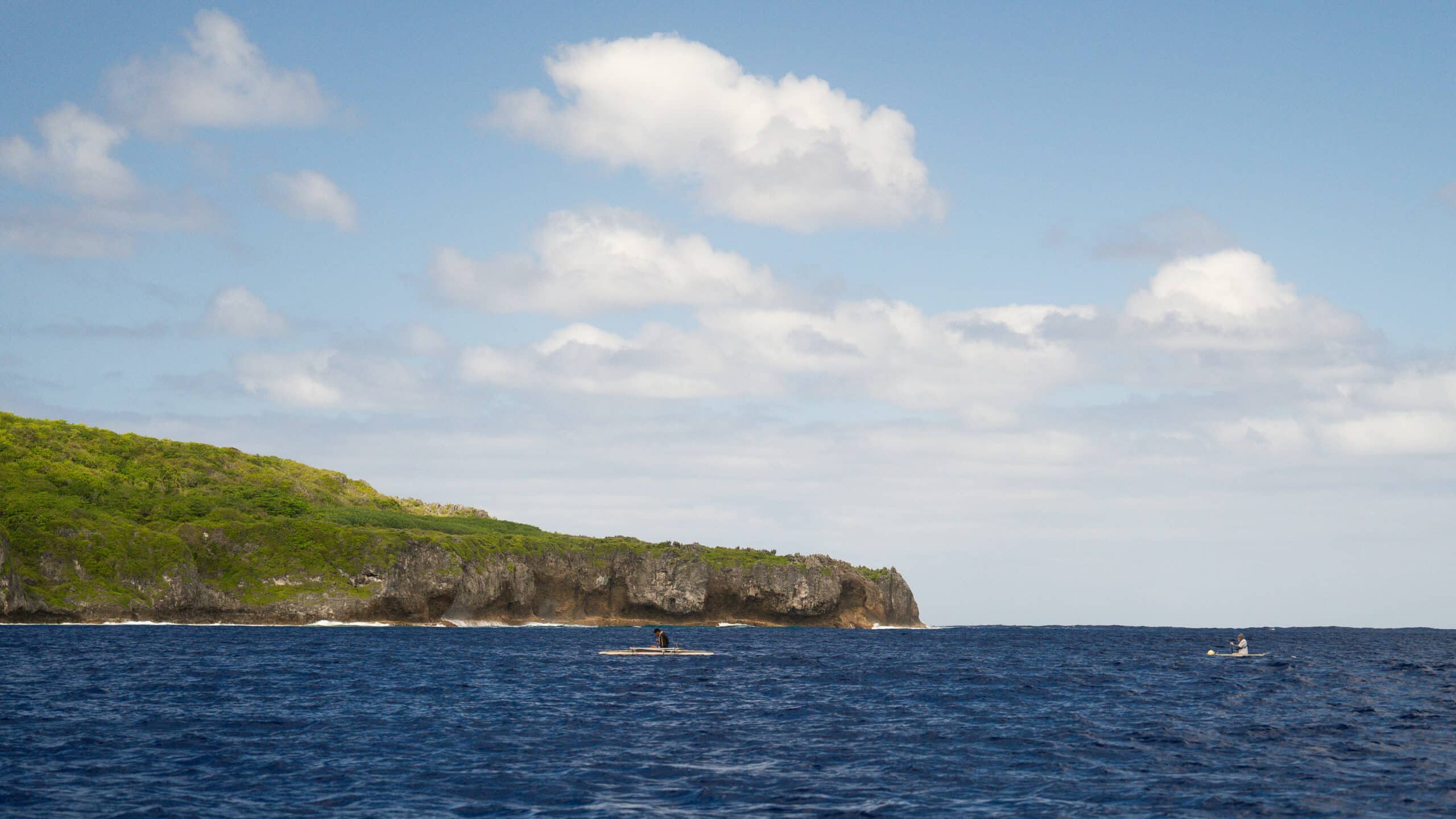Our research team is currently on expedition on the island of Niue. While we’re going to be deploying ten satellite tags, this trip is about much more than shark tagging. Read on as our Research Director, Dr. Vinay Udyawer, shares more about the goals of Expedition Niue 2025.
In many countries across the Pacific, fishing isn’t just a hobby but a crucial source of food and income. One major problem for coastal communities globally is the loss of catch by sharks, which is known as shark depredation. Sharks not only take the catch, but expensive lures and other fishing gear, which often results in conflict between the fishers and sharks
Shark depredation hits especially close to home in Niue. Many local fishers that we have worked with here over the last 10 years have noticed an increase in sharks taking their catch, which also means more expensive gear is lost. They believe that offshore industrial tuna fleets are fishing down sharks’ natural food, and as a result, they feel the sharks are coming closer to the coast to find food, like around Fish Aggregating Devices (FADs). The problem is that the fishers are also using the FADs to find their food, hence the conflict.
The increase in shark-fisher interactions through depredation has led to fishers being more and more frustrated over lost fish and lost fishing gear. This frustration, in some extreme cases, has led to fishers killing sharks. This is concerning when some of the species found here are globally threatened with declining populations. The shark populations suffer. The community’s livelihoods suffer. It’s a tough balance.

Shark depredation is a complex challenge that requires nuance and commitment. That’s where Sharks Pacific comes in. We’ve teamed up with the Government of Niue Department of Fisheries, local NGO Tofia Niue; and local fishers to get a better handle on this issue. We’re also partnered with James Cook University to better understand the social science—the drivers of human behaviour. This collaborative project is all about figuring out why this issue is happening, how it affects fishers’ livelihoods, and what we can do about it—together.
By tracking incidents of depredation and studying shark behaviour around the FADs, we’re building a clearer picture of what drives these interactions. We’re looking at things like which shark species are involved, what their seasonal movements look like, and if there’s a link between these incidents and any environmental changes such as water temperature or ocean productivity. Silky sharks and grey reef sharks are the most common culprits and gathering data on their movements and combining those data with the perspectives of fishers is key to co-developing solutions and resolving the conflict.




